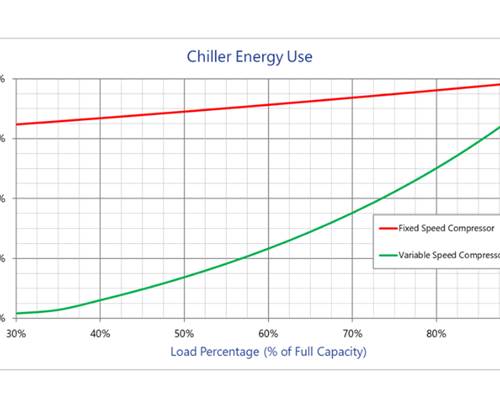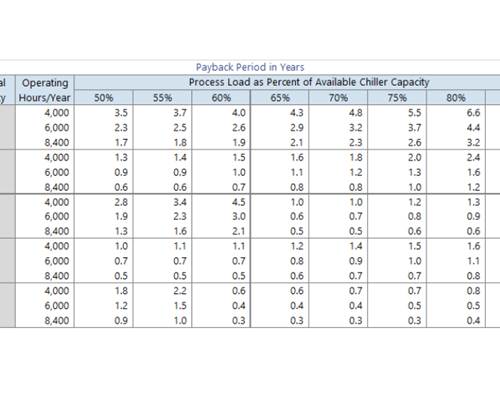A packaged system housed in a single cabinet with mounted casters, a portable chiller contains an integral tank and pumping system and uses refrigeration to cool a water circuit for industrial processes that generate heat. The removal of this heat allows for increased productivity and, therefore, increased profits. Effective cooling using portable chillers is the backbone of process industry applications such as injection molding. Conventionally, a portable chiller uses a compressor running at a continuous speed. This type also is known as a fixed-speed compressor. Regardless of the requirements placed on it by the process load, the speed remains the same. Fixed-speed chiller systems employ a hot gas bypass design to maintain the demand on the compressor. This design avoids wide fluctuations in the coolant temperature delivered to the process.
A hot gas bypass is an electronic valve located on the high pressure refrigerant line downstream of the compressor. The chiller’s controller — typically a microprocessor — reads the water temperature returning from the process. The controller actuates the valve as needed, allowing a portion of hot refrigerant gas to be reinserted — or bypassed — directly into the low pressure refrigerant line upstream of the evaporator. The evaporator is the heat exchanger that transfers heat from the process water to the refrigerant circuit. Introducing the hot, high pressure refrigerant to the low pressure side creates a false load on the system. This allows the compressor to continue running at 100 percent speed and maintains a stable process water temperature. For example, a hot gas bypass system, limited to 75 percent of compressor capacity on a 10-ton chiller, delivers stable water temperature down to a 2.5-ton heat load. As the heat load falls below the 2.5-ton mark, the compressor is forced to cycle on and off as its last means of temperature control and, ultimately freeze protection. With any motor, rapid cycling is detrimental to the life expectancy. This is known as short cycling. An anti-short-cycle timer is employed to protect the compressor from premature failure.
A conventional hot gas bypass system coupled with a widely varying process heat load leads to rapid temperature swings delivered to the process. Many process cooling applications require stable incoming cooling temperatures. Avoiding fluctuations like this is crucial to consistent output from the process and eliminating scrap.





